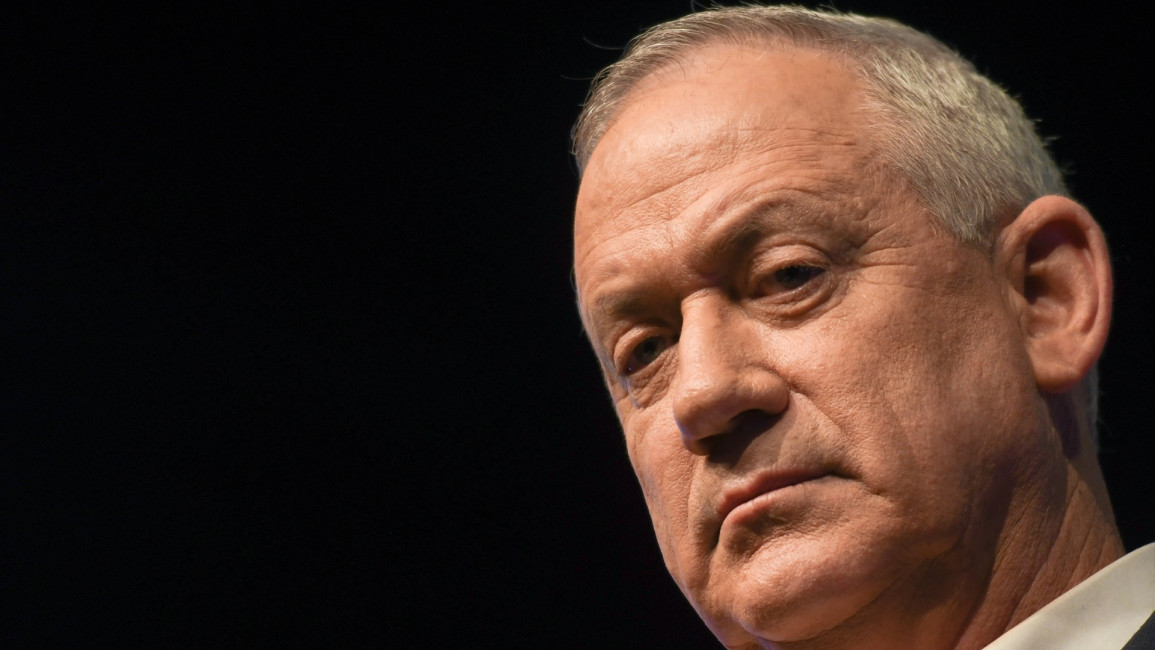Israel's Benny Gantz may 'visit' Jordan to defuse tensions ahead of planned annexation
A Western diplomats leaked information that Gantz's first visit as defence minister could be to Jordan, ahead of the planned illegal annexation of the occupied Palestinian Territories on 1 July by Israel, Al-Rai reported.
The report did not name its sources and there has been no immediate confirmation from Gantz's office, according to The Time of Israel.
If the visit does go ahead, it will be the Blue and White Party leader’s first overseas trip since entering into a power-sharing agreement with Prime Minister Benjamin Netanyahu in April.
An Israel Channel 12 report on Monday claimed that US President Donald Trump's backing of Netanyahu's planned annexation rested on the support of Gantz and Israel's Foreign Minister Gabi Ashkenazi.
Yet on Sunday the Likud Party leader appeared to snub US constraints. In a meeting with 11 settlement leaders, Netanyahu stated that settlement expansion would not be frozen, despite a clause in Trump's so-called "Deal of the Century" requiring Israel to do so.
Twitter Post
|
In the same meeting, he said that Israel, which was still waiting for the green light to begin annexation, would end up annexing less territory that it had planned, Haaretz reported.
Read more: ‘No freeze of settlement’: Netanyahu adamant on West Bank annexation without US conditions
The Trump plan envisions leaving arout one third of the West Bank, which Israel captured in 1967, under permanent Israeli control, while granting the Palestinians limited autonomy over the remainder of the territory.
The Palestinians, who seek the West Bank as part of an independent state in its entirety, have rejected the plan, saying it unfairly favours Israel.
The annexation plan has come under harsh criticism from some of Israel's closest allies, who say that unilaterally redrawing the Middle East map would destroy any lingering hopes for establishing a Palestinian state and reaching a two-state peace agreement.
Jordan and Egypt, the only Arab countries with formal peace agreements with Israel, have condemned the plan.
Jordanian officials, including the kingdom’s prime minister and foreign minister, have already threatened to reconsider their treaties and agreements with Israel.
In an interview with German-language Der Spiegel, King Abdullah warned that if Israel "really annexes the West Bank in July, it would lead to a massive conflict with the Hashemite Kingdom of Jordan".
Despite increasing tensions between the two neighbours, cooperation in the security and intelligence realms remains tight.
Last week, Jordanian authorities confirmed the trial of five citizens accused of plotting suicide attacks against Israeli targets in the West Bank, following their arrest in February.
Agencies contributed to this report.
Follow us on Facebook, Twitter and Instagram to stay connected.



